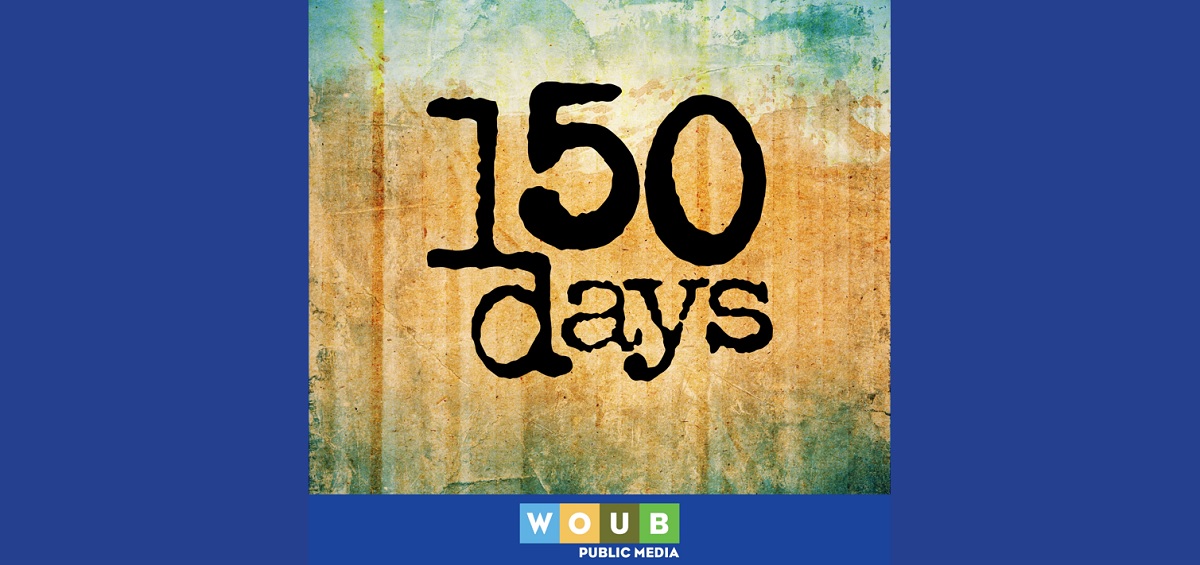Communiqué

First episode of “150 Days” podcast has been released
< < Back to ?p=325429The eight-episode limited series podcast is an extension of WOUB’s 150 Days reporting project
ATHENS, OH – If the state of Ohio comes and takes your children based on untrue allegations, and you don’t have the money to hire your own lawyer, when does everyone realize there’s been a mistake and let your kids come home? That’s the question that will be examined and answered in a new limited-series podcast being released by WOUB called 150 Days. The eight-episode podcast is an extension of the 150 Days online reporting project released by WOUB in May of 2023.
“After we published the online story, we heard from several people that it was hard to read or finish due to how long it was. On top of that, we had tons of compelling audio we hadn’t had the chance to share with people,” said WOUB News Reporter/Report for America Corps Member Theo Peck-Suzuki. “It felt like we could reach more people with the podcast and also give the folks who had already read the story more to dig into. Plus, as time passed, the outcome of the story changed in some important ways.”
150 Days explores the story of Theresa Fogel. Fogel moved with her four children to a small town in rural Ohio, hoping for a fresh start. Instead, unsubstantiated allegations of abuse prompted the local child welfare agency to take her children. As Fogel struggled to regain custody, she discovered what critics call the dark secret of child welfare: that your children can be taken for reasons the state may never have to prove and getting them back is anything but guaranteed.
Peck-Suzuki and fellow WOUB News Reporter David Forster started working on 150 Days in July of 2022. The original intent was to create the online story and the podcast at the same time. But the two quickly realized that, due to the complex nature of the reporting, they needed to focus on one platform at a time. The podcast version of 150 Days brings information and perspectives that weren’t part of the original online project.
“Podcasts are a very different medium from a traditional long-form written piece. For one, they’re more personal. The reporters tend to be ‘in’ the story more, though this varies from one podcast to the next, and there are different philosophies on how appropriate this is,” said Peck-Suzuki. “Our thinking was that it can be instructive for the listener to hear how David and I came at the story. There are things that we found confusing, or that dumbfounded us. We don’t dwell too heavily on all that, but our thought process is more visible in the podcast.”
The podcast will also make the reporting project available to a different audience.
“Podcasts are also more accessible in some ways than written pieces. A person can listen to a podcast while driving or doing chores around the house. You can’t really do either of those things with a written piece. You have to just sit down and read it,” said Peck-Suzuki. “We wanted people to read our story, but we also want them to be able to hear it if that’s what they prefer or what interests them.”
Because so much time has passed since the original 150 Days was published, the final section of the story has been updated.
“Theresa’s story ends in a different place than it did when we left her in May of 2023,” said Peck-Suzuki. “People who listen to this podcast will learn about how the child welfare system works or doesn’t work. They’ll learn about just how high the stakes are. And they’ll come away with a much better sense of how people from a bunch of different backgrounds are trying to fix it.”
If the subject of this podcast interests you, please subscribe to 150 Days. WOUB podcasts are available on Apple Podcasts, the NPR app, and Spotify. You may also find WOUB podcasts on the NPR Podcast Directory: https://www.npr.org/podcasts/organizations/s567 or woub.org/listen

